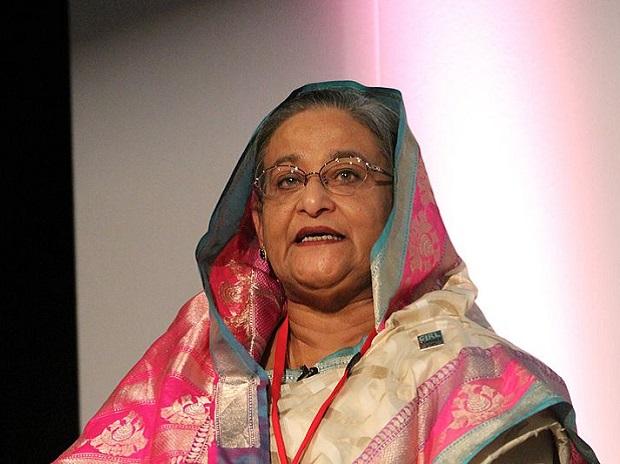[ad_1]
As general elections approach this week in Bangladesh, opposition leader Abdul Moyeen Khan says he had to hide out in the homes of a string of acquaintances until nominations closed, trying to escape a government crackdown. The former minister and his Bangladesh Nationalist Party (BNP) are not running in the January 7 vote, in which Prime Minister Sheikh Hasina is chasing a fourth straight term, despite a bleak economy that needed an IMF bailout last year.
“We’re not even in the election, but they are still not sparing us,” the grey-haired Khan, 77, said in Dhaka, the capital, on his return home in December after nominations closed and removed any risk that he could pose an electoral threat. His party boycotted the vote after Hasina refused to cede power to a caretaker government to run the poll. Now it says 10 million party workers are on the run after the arrests of nearly 25,000 following deadly anti-government protests on October 28.
Conditions were worse than at the time of the last election in 2018, when attacks on party workers kept him from holding even a single rally, he added.
Hasina and her Awami League have repeatedly condemned the BNP as troublemakers out to sabotage the polls.
Police ransacked the homes of BNP leaders and workers in frequent nighttime raids, he said, even detaining family members of those who evaded them. Some hid out in forests, paddy fields and cemeteries to escape, two other party leaders said.

However, police say they arrested only those involved in the violence, with one senior officer rejecting the opposition estimates as incorrect.
“Police are arresting only those involved in killings and attacks, vandalism and arson,” said the officer, who sought anonymity as he was not authorised to speak to the media.
About 100 women members have been arrested over the past 1-1/2 months, said Afroza Abbas, head of the women’s wing of the BNP.
Hasina has said it was the opposition that was ready to kill for political gain, however.
“Any party can boycott the poll but why do they burn people to death?” she asked recently at a rally in the northeastern district of Sylhet.
“If anyone interferes with voting or elections, people will reject them.”
The United States, the biggest buyer of Bangladesh’s garments, has condemned the violence, and curbed visas for citizens of the South Asian nation believed to have a role in undermining elections.
“We want what the Bangladeshi people themselves want: free and fair elections conducted in a peaceful manner,” a U.S. State Department spokesperson said.
In her past 15 years in power, Hasina, 76, has been credited with turning around the economy and the massive garments industry, winning international praise for sheltering Rohingya Muslims fleeing persecution in neighbouring Myanmar.
But the economy has slowed sharply since the Russia-Ukraine war boosted prices of fuel and food imports for the country of 170 million, which turned to the International Monetary Fund for a bailout. The IMF approved funds of
$4.7 billion last year.
First Published: Jan 02 2024 | 11:23 PM IST
[ad_2]

